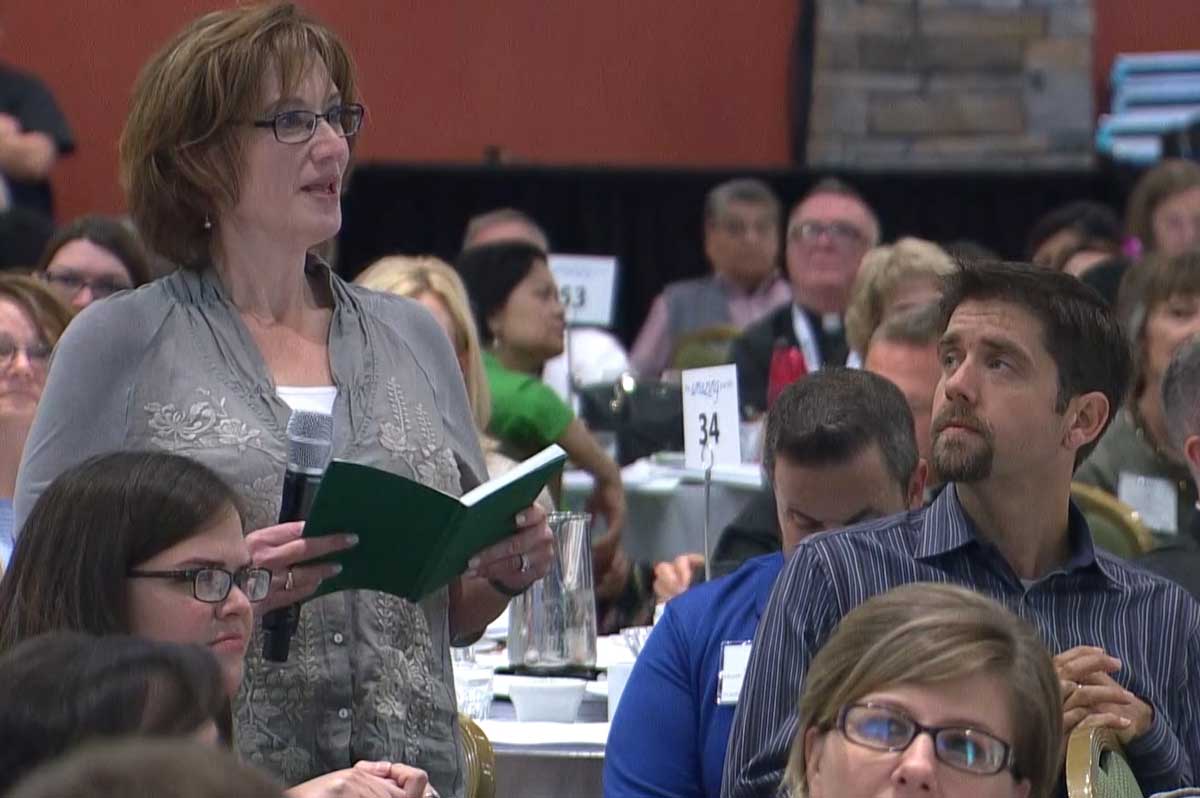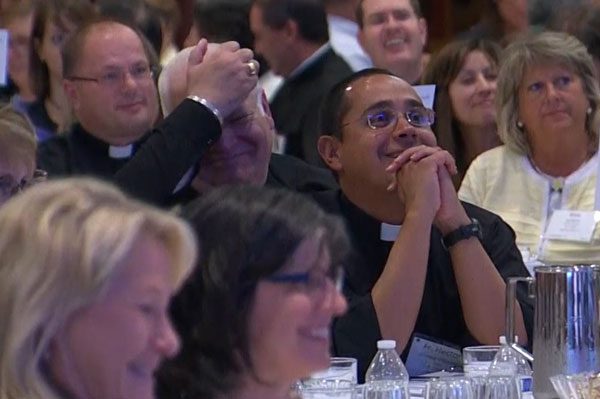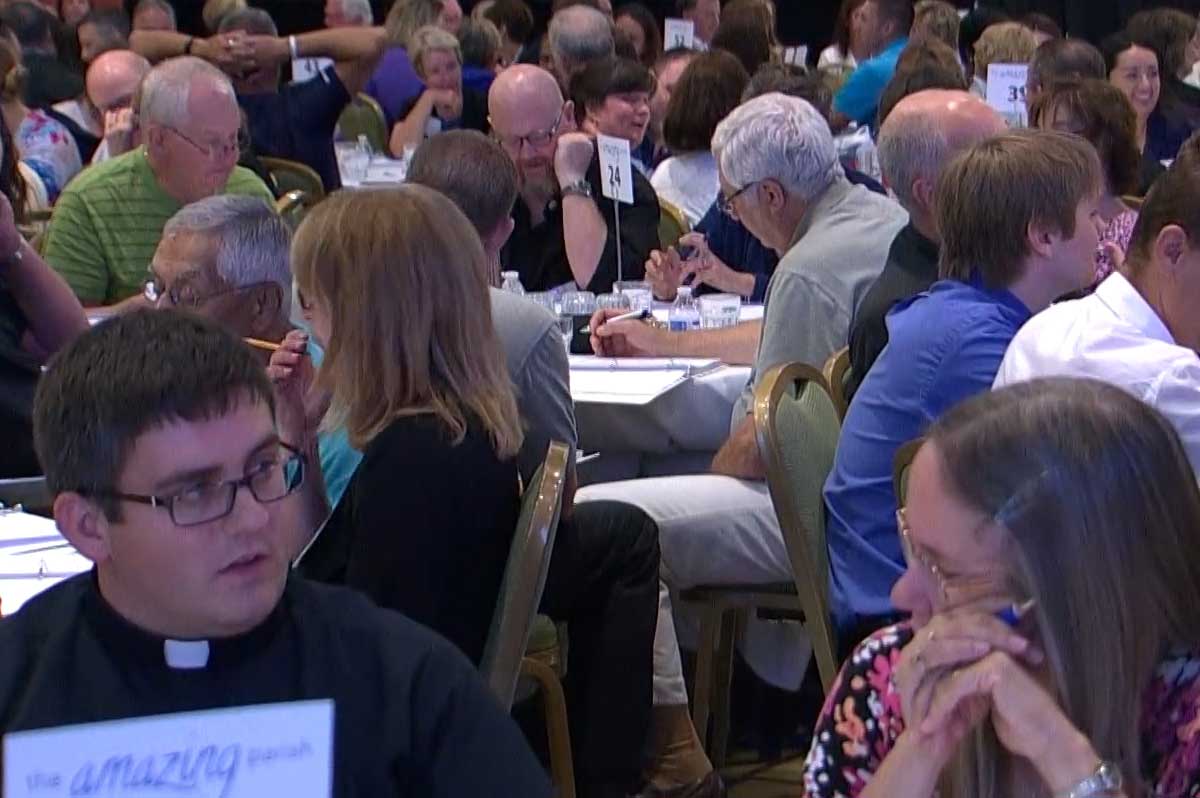Start Forming Your Parish Leadership Team
No pastor, not even the best one, can run a parish on his own. With fewer priests, more demands from parishioners in a complicated society and a faster pace of life, he can’t do it alone. Every pastor needs a team, a special group of leaders who are collectively committed to helping him make the parish amazing and bring more people to Christ and his Church.


How Can a Pastor Be a Member?
Unlike almost any organization in society, a parish has a unique challenge when it comes to forming a real leadership team at the top. Because the pastor has two different roles, spiritual shepherd and organizational leader, it can be more difficult for him to be part of the leadership team. This is why it is key that the pastor build a relationship of trust with his leadership team, so that he can at once be seen as something of a peer when it comes to matters of organization and operations, and then be a spiritual leader in matters of faith.
How Many People Should be on the Team?
There is no ideal number of people that should make up a leadership team, however the best range is somewhere between 3 and 8. Why? Less than three doesn’t provide much input and diversity of opinion, saddling the two members of the leadership team with too much responsibility. It also limits the representation of various parts of the parish on the leadership team.
Typically, more than eight team members is problematic for a few reasons. First, the more people on a team, the harder it is to establish strong levels of vulnerability-based trust. This makes sense given that trust requires team members to get to know one another extremely well. Second, too many team members makes it harder to schedule meetings and events.
Finally, and most importantly, having more than seven or eight team members makes it hard to engage in effective discussion and decision-making during meetings. Team members need to engage in two primary kinds of communication: advocacy (making suggestions and lobbying for ideas) and inquiry (asking questions and probing for better understanding of other people’s ideas). On great teams, more inquiry takes place than advocacy. But when there are too many people at the table, team members engage in more advocacy than inquiry because they are concerned that they won’t get the time and opportunity they need to make their ideas heard. This leads to misunderstanding and suboptimal decision-making.
How Do You Build a Team?
Building a leadership team is first a matter of getting the right people around the table. Then, it is a matter of spending enough time together – not weeks and months, but a couple of days – to establish the five behaviors of real, cohesive teams. These include the establishment of vulnerability-based trust, the ability to engage in productive conflict, the ability to commit to group decisions, the willingness to lovingly hold one another accountable for results and behaviors, and the collective focus on the goals of the whole parish.
By engaging in a few simple discussions and activities, a group of leaders can begin to behave like a team in a matter of hours and days. Of course, they must then continue to practice those behaviors to maintain their sense of teamwork.

Who Should Be on the Team?
As we’ve already stated, a parish leadership team should not be too big. Members of the team should be people who are responsible for major departments in the parish and who have the skills and attitude to contribute to the overall success of the parish, not just their areas of responsibility.
It’s important to remember that a parish leadership team is rarely the same as a parish council. And it is not necessarily the parish office staff, the people who do bookkeeping, reception and other administrative functions. It is the group of leaders who the pastor will rely on to help him with strategic and operational decisions and implementation.
Though each team will be a little different, members of many parish leadership teams will often be comprised of people with the following titles: Director of Religious Education, Business or Operations Management, Youth Ministry, Faith Formation, Evangelization, Administration or School Principal. Again, every parish is different. However, every team member must not only have the right title, but the right attitude and skill set.
Caution: Here are the common mistakes pastors make when establishing a leadership team:
1. Trying to be too inclusive and putting too many people on the team.
2. Not wanting to hurt someone’s feelings and putting them on the team when they really shouldn’t be on it.
3. Having a difficult person on the team because of their functional role alone.
4. Putting people on the team who are not committed to excellence and needed change.
5. Putting people on the team who are difficult in the hopes that they can win over other difficult people.
6. Keeping people on the team who have been in the parish for a long time simply to satisfy long term parishioners.
7. Failing to make it clear to team members that they will be held to high standards.
8. Allowing team members to present themselves to the parish as power brokers rather than servants.

